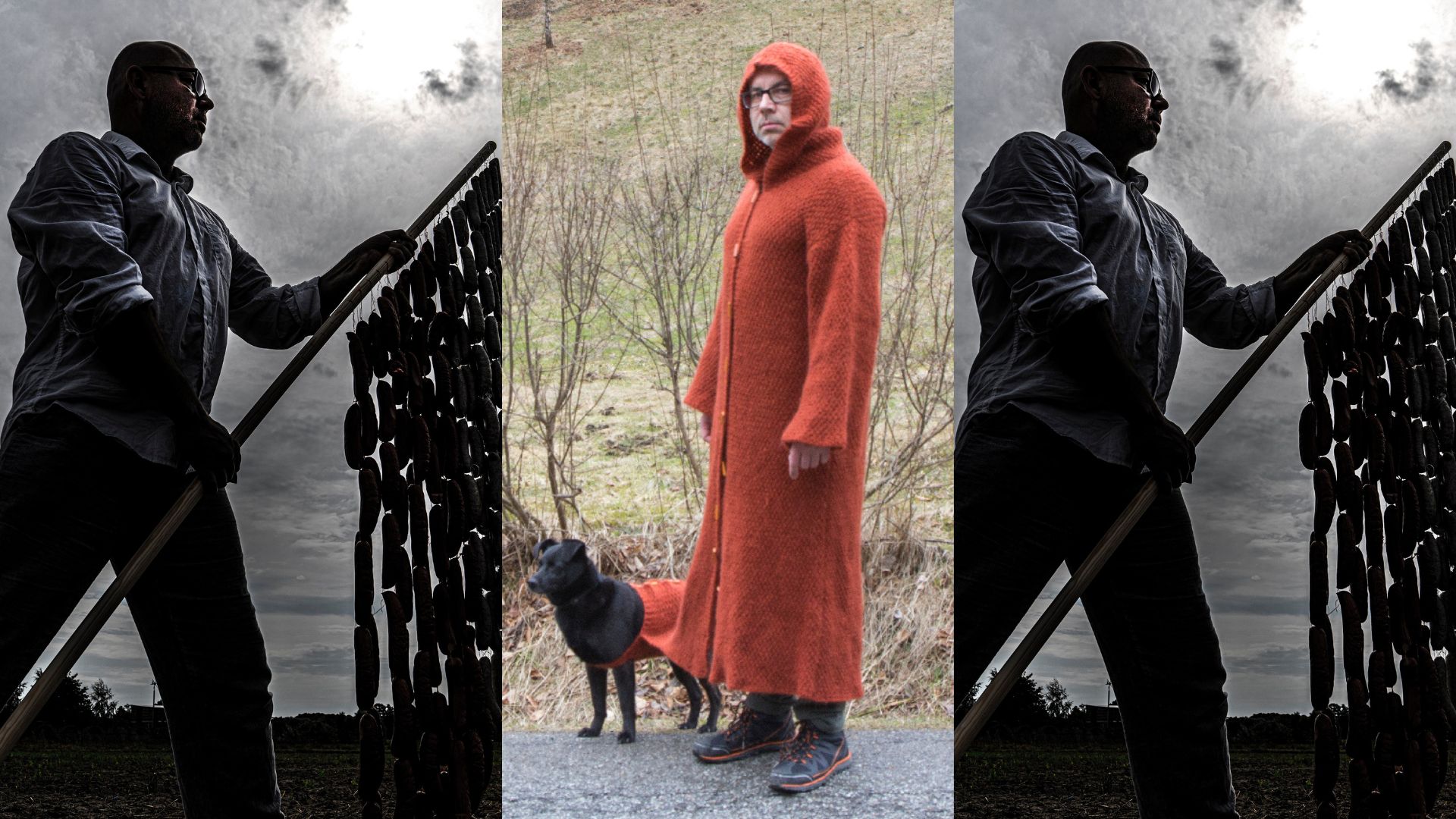One of the performances in the program is Tomasz Opania’s “Lentil, Wheel, Grinds, Mill”. The title of the performance refers to one of the first Polish “shibboleths” and is inspired by Doris Salcedo’s Shibboleth, presented at Tate Modern in 2007. Opania constructs an intimate narrative based on the history of his own family, who experienced the stigma of these cruel keywords that separate “us” from “them.” Salcedo’s installation – a symbolic tear, scratch, or scar – speaks to trauma and violence, the invisibility of victims, and social marginalization. Her works uncover a hidden part of history excluded from official narratives, showing that language and symbolism can be used to obscure painful truths and sustain silence. Salcedo clearly illustrates how the language of oppression conceals the realities of suffering, making them invisible to the public.
Soczewica, koła, miele młyn – “lentil, wheel, grinds, mill” – are the words form one of the earliest known Polish shibboleths. The term shibboleth comes from Hebrew, meaning an ear of grain or a stream. It refers to a word or phrase containing a phoneme characteristic of a particular language and extremely difficult for non-native speakers to pronounce correctly. In the biblical story, the word shibboleth was used by the Gileadites to identify the Ephraimites, who were unable to pronounce it properly:
And the Gileadites took the passages of Jordan before the Ephraimites: and it was so, that when those Ephraimites which were escaped said, Let me go over; that the men of Gilead said unto him, Art thou an Ephraimite? If he said, Nay; Then said they unto him, Say now Shibboleth: and he said Sibboleth: for he could not frame to pronounce it right. Then they took him, and slew him at the passages of Jordan: and there fell at that time of the Ephraimites forty and two thousand.
Other historical examples of shibboleths include:
- The Ukrainian word palanytsia (bread). During the war started by Russia in Ukraine, it became a code word used to distinguish Ukrainians from Russians. For Ukrainians today, each slice of this bread symbolizes resistance and a connection to home.
- The Spanish word perejil (parsley). In 1937, Dominican dictator Rafael Trujillo ordered the mass execution of Haitians working on sugar cane plantations in what came to be known as the Parsley Massacre. Dominican soldiers would ask suspected Haitians to name the herb. Those who, due to their Haitian Creole accent, couldn’t pronounce the rolled “r” were killed. Estimates of the death toll range from 9,000 to 20,000.
- The Sicilian dialect word ciciri (chickpeas), used by native Sicilians during the so-called Sicilian Vespers in the late 13th century to identify and kill French soldiers of the Anjou dynasty.
- During the anti-Armenian pogrom in Sumgait, Azerbaijan in 1988, the word funduk (hazelnut) served as a shibboleth – Armenians were said to pronounce it with a “p” instead of an “f.”
- In Lebanon’s 1975 civil war, soldiers at checkpoints used the word banadoura (tomato) to identify allegiances. Pronounced banadoura in Lebanese Arabic, it was safe; pronounced bandoura in Palestinian Arabic, it could mean execution by firing squad.
According to the Krasiński Yearbook, during the Kraków burghers’ rebellion of 1312, soldiers loyal to Władysław Łokietek used the tongue-twister soczewica, koło, miele, młyn to identify non-Poles. Those unable to pronounce it – many of whom were German-speaking townspeople – were executed. Some historians argue that the townspeople, mostly of German origins, led by the hereditary mayor Albert, wanted to replace Łokietek with the Silesian prince Bolko (Bolesław). Others believe the goal was to restore the Polish-Czech union, handing control of Kraków and Wawel Castle to John of Luxembourg, successor of Wenceslaus.
My surname – Opania – is not Polish, and my mother’s maiden name, Heller, sounds German. My grandmother was born in Zabrze, which was a German city at the time. Together with her parents and 12 siblings, she moved house 27 times, living on both sides of the German-Polish border – in Wirek, Pawłów, Zabrze, and Nikiszowiec. Her father fought in all three Silesian Uprisings. When the Russians entered Zabrze in 1945, he fled to Germany with a shipment of machinery from the factory where he worked. Had he stayed, his German surname would likely have marked him for execution.
One of my grandmother’s sisters lived in a customs house on the German side, as her husband was a German border guard. In 1939, just before the outbreak of World War II, one of my grandmother’s brothers was conscripted into the Polish army. Wanting to say goodbye to his sister, he crossed the “green border” – then a convoluted and porous boundary marked only by a narrow river. On his return, however, he was shot by a Polish border guard. My aunt, a little girl at the time, heard the shots. Another of my grandmother’s brothers was killed by neighbours in his stairwell, suspected of collaborating with the Germans.
This personal story, together with historical accounts of shibboleths, forms as if two layers of a narrative about identity. On the one hand, I understand the function of shibboleths – key words that separate “us” from “them.” On the other hand, I struggle to accept the binary, black-and-white worldview they imply – a world with no room for ambiguity or nuance.
This performance is an attempt to confront how language and borders shape our sense of belonging – and how easily we can become victims of divisions imposed by those in power. Because, in truth, nothing is ever that simple.

